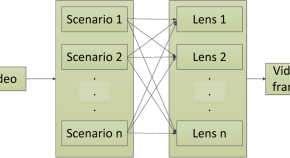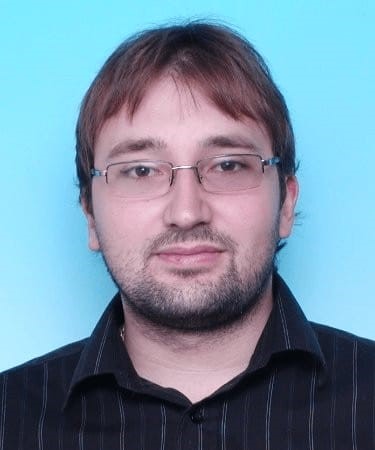
Collection
Engineering: Theory and Applications for Machine Learning Guided Evolutionary Optimization in Multi Modal Data Science
- Submission status
- Closed
Editors
-
B.D. Parameshachari
Dr. B.D. Parameshachari is currently a Professor and Head of the Department of Telecommunication Engineering at GSSSIETW, Mysuru, India. He has published over 100+ articles in SCI, SCOPUS and other indexed journals and also in conferences. He is also the Founding Chair of IEEE Mysore Subsection and IEEE Information Theory Society - Bangalore Chapter. He serves as Associate Editor, Editorial Board Member, Guest Editor for several reputed indexed journals and as Conference Chair for IEEE Flagship Conferences. His research interest includes Image Processing, Cryptography, Pattern Recognition, Data Science, Sensors and Networks.
-
Liyanage Chandratilak De Silva
Dr. Liyanage Chandratilak De Silva is a Professor and Deputy Dean of the Faculty of Integrated Technologies at the University of Brunei Darussalam, Brunei. He has published more than 160 papers in areas like Signal Processing, IoT, Sensor Integration, Power System Analysis and holds one Japanese national patent, which was successfully sold to Sony Corporation Japan, and 1 US and 1 Brunei patent. His works have been cited as one of the pioneering works in bimodal (audio and video signal based) emotion recognition by many researchers. He is a senior member of IEEE USA and the interim chair of IEEE Brunei Darussalam Subsection.
-
Jaroslav Frnda
Dr. Jaroslav Frnda, University of Zilina, Slovakia. He received the M.Sc. and Ph.D. degrees from the Department of Telecommunications, VSB—Technical University of Ostrava, in 2013 and 2018, resp. He has been working as Assistant Professor with the Department of Quantitative Methods and Economic Informatics, Faculty of Operation and Economics of Transport and Communications at University of Žilina, Slovakia, since 2019. He has authored and coauthored 27 SCI-E and nine ESCI articles in WoS. His research interests include quality of multimedia services in IP networks, data analysis, and machine learning algorithms.
Articles (11 in this collection)
-

-
Evaluation of image segmentation and multi class object recognition algorithm based on machine learning
Authors
- Le Zhang
- Content type: Research Article
- Open Access
- Published: 25 April 2023
- Article: 147

-
Evaluation of problems and countermeasures in marketing teaching based on cloud computing data aggregation algorithm
Authors
- Weinan Shen
- Content type: Research Article
- Open Access
- Published: 22 April 2023
- Article: 144

-
Rural regional economic data management based on blockchain technology
Authors
- Yan Zuo
- Content type: Research Article
- Open Access
- Published: 26 March 2023
- Article: 115

-
Research on reliability evolutionary optimization of relays device based on Multi-Markov model
Authors (first, second and last of 4)
- Xiang Wang
- JianFeng Zhao
- TianShuo Wang
- Content type: Research Article
- Open Access
- Published: 18 February 2023
- Article: 86

-
Synchronous restoration of video key frame loss based on digital media communication protocol
Authors
- Feng Li
- Content type: Research Article
- Open Access
- Published: 01 February 2023
- Article: 70

-
Study on optimization of vehicle exhaust system noise and hook position based on multi-source experimental data analysis
Authors
- Jianqiang Xiong
- Content type: Research Article
- Open Access
- Published: 18 January 2023
- Article: 57

-
Research on effectiveness of college english blended teaching mode under small private online course based on machine learning
Authors
- Ruishu Wang
- Content type: Research Article
- Open Access
- Published: 13 January 2023
- Article: 55

-
Affective computing model for natural interaction based on large-scale self-built dataset
Authors
- Jin Lu
- Xiaoting Wan
- Content type: Research Article
- Open Access
- Published: 11 January 2023
- Article: 53

-
Immersive animation scene design in animation language under virtual reality
Authors
- Chao Xu
- Content type: Research Article
- Open Access
- Published: 26 December 2022
- Article: 42

-
Vibration test and robust optimization analysis of vehicle suspension system based on Taguchi method
Authors
- Jianqiang Xiong
- Content type: Research Article
- Open Access
- Published: 08 December 2022
- Article: 4





